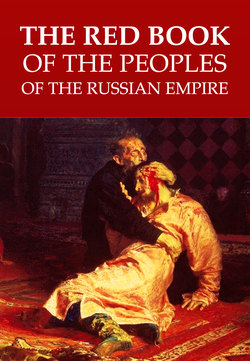Читать книгу The Red Book of the Peoples of the Russian Empire - Margus Kolga - Страница 6
На сайте Литреса книга снята с продажи.
ОглавлениеWHAT TO DO WITH PEOPLES
There are more than 5,000 peoples in the world. The number of states is much smaller — only more than 200, whereas not all of them have international recognition.
Although there exist state institutions with limited sovereignty and autonomies within one state the general situation is depressing — most peoples are forced to live in the territory of states that have been established by other nations, though in many cases it is their ancient homeland.
It is obvious that they have not surrendered their independence voluntarily. Destiny of nations has greatly been determined by conquests, collusive agreements, individual interests of the persons involved, unethical diplomacy, corruption of leaders and other measures.
At the present age absence of independent statehood brings along decay of the nation because language and culture which are the main factors that guarantee its survival can not develop without restraint under conditions of a foreign power.
It is possible to prolong the process of gradual perishing but the main precondition of an alternative solution can only be independence.
Besides its benefits, globalisation that characterises the contemporary world is a new challenge for nations. According to the most pessimistic prediction, in a hundred years there will be three essential languages remaining in the World — Chinese, Spanish and English. Even French, German, Japanese, Arabian and Russian will be regressed to the level of local usage. Evolution of this tendency is relatively easy to notice.
Disappearance of cultural variety would be a great loss for culture of the human race as it is the only basis of veritable unity. Retention of nations is not regarded as essential although importance to preserve the maximum of the species in the nature is understood. Moreover, a nation as such has not been given any rights. States and individuals have rights, not nations that are actually the bearers of language and culture and which enable and guarantee formation of a human being.
This book constitutes a warning example of the destructiveness of imperialist manner of thought. Russia, having been called a prison of nations from the ancient times already, has destroyed subjugated peoples for centuries. Fortunately many of them still exist and some succeeded to become independent after the collapse of the Soviet Union. But most peoples are still oppressed and fight for their rights.
6 September 1990 a conference took place in Tartu, Estonia where it was decided to establish the Unrepresented Nations and Peoples Organization. It is meaningful that Tibetans who have been enslaved by another communist empire — the Republic of China — also took part in the conference among the representatives of the Soviet Union peoples. The establishment and elaboration of that organisation (53 nations of which several are registered in the Red Book are members of the organisation) shows that in addition to the tendency mentioned above another tendency contrary to the first one exists — peoples’ growing selfconsciousness and attempt not only to survive but to reach a higher level of civilisation through self-development.
To ensure this trend Universal Declaration of the Rights of Peoples was compiled in UNPO Tartu Coordination Office. 17 February 2001 UNPO VI General Assembly, gathered in Tallinn, Estonia, adopted the Declaration.
Linnart Mäll
Chairman of UNPO
